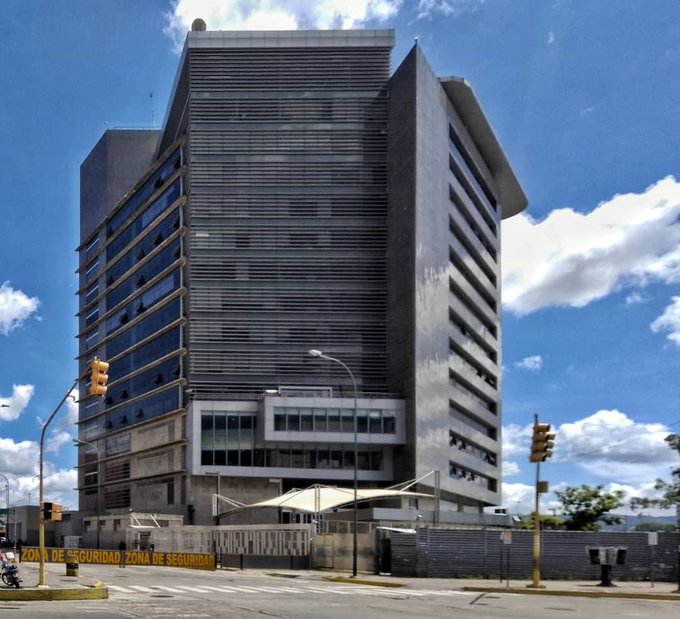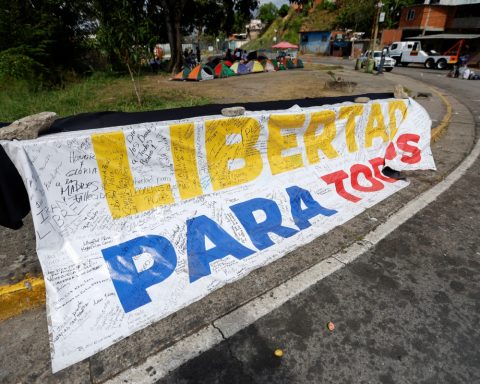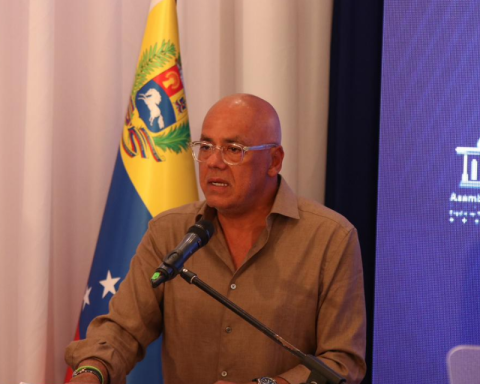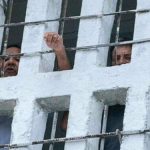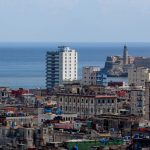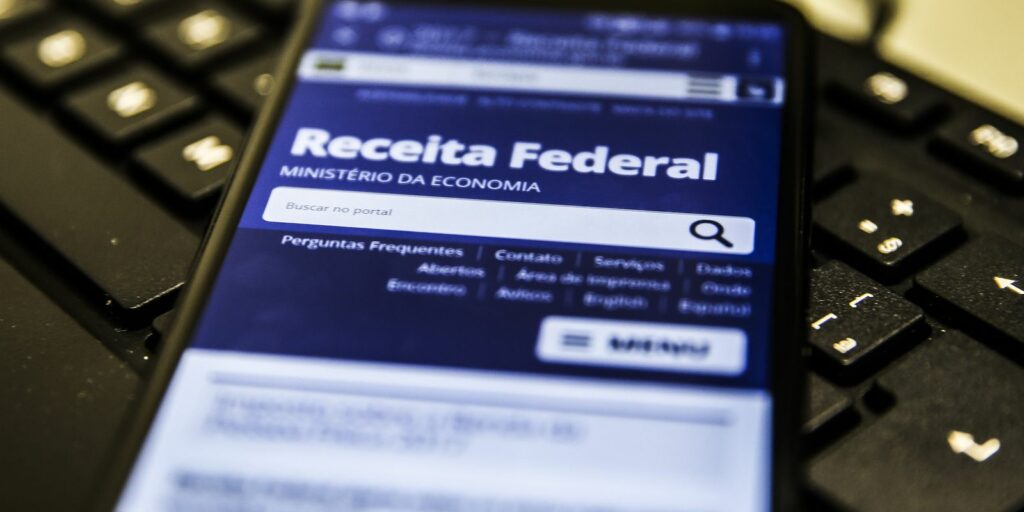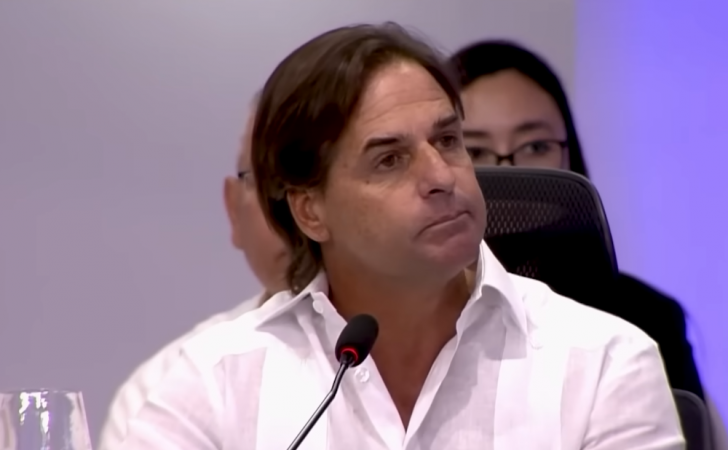The corruption plot that was revealed in the oil industry last Friday, March 17, was already partially known to President Nicolás Maduro. In fact, the Head of State said so last Monday before the PSUV national leadership, where he revealed that he personally participated in the investigation into “mafias that embedded themselves in PDVSA and Sunacrip,” with ramifications for the private sector. And that already in October 2022 they knew the first signs.
Five months later, the National Anti-Corruption Police, whose headquarters are located in the Bolivarian Intelligence Service (Sebin), informed the country about a request made to the Public Ministry: to channel (open files) several public officials allegedly involved in acts of corruption in the oil industry, mayors’ offices and the Judiciary.
That same Friday, March 17, the arrest of two officials from the Judiciary was announced: Cristóbal Cornielles, president of the Criminal Judicial Circuit of Caracas, and José Maxcimino Márquez García, fourth anti-terrorist judge. Joselip Ramírez, head of the National Superintendency of Cryptoactives (Sunacrip), was also arrested that Friday.
Although there is no official statement, high officials of the judicial system commented that the arrest of Cornielles and Márquez is due to their alleged participation in the release of Oswaldo José Cheremos Carrasquel (El Pelón Cheremos), a member of the criminal organization Tren del Llano, specialized in charging vaccines to the agro-producers of Guárico, among other crimes.
El Pelón Cheremos was released on January 9 by decision of the 4th Anti-Terrorist Court in charge of Márquez García, as published by Últimas Noticias. The Public Ministry did not exercise the appeal with suspensive effect to stop the measure that put Pelón Cheremos on the street, prosecuted for illegal trafficking in weapons of war, among other crimes.
One month and six days later, the same 4th Anti-Terrorist Court that released Cheremos Carrasquel ordered his recapture, a measure that took place on February 15, when he went to appear before the aforementioned court located in the Palace of Justice in Caracas. At the moment that Judge Márquez García notified him that he had a new arrest warrant, El Pelón Cheremos told him how he had delivered 240 thousand dollars between vehicles and dollars in cash to Loreannys Mariana Mejías Díaz, assistant to deputy Antonio Benavides Torres, who allegedly He was suspended from the parliamentary bench of the Bloque de la Patria.
They presume that the money paid by alias El Pelón Cheremos to obtain the momentary release comes from the sale of firearms, according to initial investigations.
Alias The Rabbit
That same Friday, March 17, the National Anti-Corruption Police detained Pedro Hernández, mayor of the Santos Michelena municipality (Las Tejerías), an Aragüe population from where Carlos Enrique Gómez Rodríguez, alias El Conejo, operated, whose criminal organization was dedicated to committing extortion against merchants of the region, among other crimes.
And in recent times, El Conejo was contacted by Colombian drug trafficking groups to guard their caches in the central region of the country. Apparently El Conejo had an ally in Mayor Hernández when it came to undertaking the transfer of drugs from Colombia. On Monday, March 20, President Nicolás Maduro was surprised to learn of the mayor’s ties to the criminal. “Who would have thought?” he wondered.
The testimony offered by the detained mayor served as a guide to execute Operation Jabalí, through which security organizations killed alias El Conejo, last Thursday morning in the Cerro Colorado sector, Mariño municipality (Irapa), Sucre.
Hernández is one of the first of this Anti-Corruption Operation to be brought before a court and charged with the crimes of terrorism, aggravated extortion and association, according to sources.
Sunacrip and PDVSA mafias. In those first hours of the Anti-Corruption Operation, the head of Sunacrip, Joselip Ramírez, was also arrested. Últimas Noticias obtained an explanation of how that body participated in an embezzlement against the State amounting to approximately 3 billion dollars, which disappeared through the mechanisms of cryptocurrencies.
The oil expert Alejandro Terán Martínez explained that due to the blockade imposed by the United States on Venezuela, the commercialization of crude oil has been carried out through operators and virtual currencies. But in December of last year when the National Executive is going to review the accounts, the 100,000 barrels of oil sold between October and November are not integrated. A first alert was given by the businessmen who complained about the “alcabalas” that they had to overcome in order to get paid for the sale of oil. This tension was experienced in PDVSA at the end of last year, precisely when the Chevron company resumed operations in Venezuela sponsored by the license granted to it by the United States.
Derived from the statements offered by Joselip Ramírez, the National Anti-Corruption Police began to summon key figures from the oil industry, including Colonel Antonio Pérez Suárez, vice president of Exploration and Production of PDVSA. The colonel was on secondment to the state oil industry, but allegedly had abruptly moved away from his natural command, which is the Defense Ministry.
Pérez Suárez’s statements before the National Anti-Corruption Police served to detain deputy Hugbel Roa, captured on the afternoon of Sunday, March 19 and placed in custody inside his residence located in Bosque Valle, Tazón, Caracas, until his immunity was lifted. parliamentary, a circumstance that occurred last Tuesday, March 21, in the ordinary session of the National Assembly.
The search for immunity was processed by the Public Ministry before the Full Chamber of the Supreme Court of Justice, whose 20 magistrates also met on Tuesday. And while the National Assembly touched on the point of the Anti-Corruption Operation, the Plenary Chamber authorized Roa to be stripped of that constitutional privilege of immunity to later be prosecuted through ordinary channels.
In this case, Roa is accused of appropriation or distraction of public assets, boasting or validation of relationships or influences and legitimization of capital and association.
The deputy is blamed for the alleged formation of a prostitution network. Initial investigations indicate that Roa owned a property in the Los Campitos urbanization, Baruta municipality (Miranda), where they used to hold large celebrations with pre-paid girls. The entrance was, enter without any clothing, according to witnesses.
But Roa’s participation in that investigated embezzlement from PDVSA is related to the laundering of money from alleged extortion of oil companies. In these criminal acts, Daniel Prieto Prieto accompanied him as one of his main partners, who fled Venezuela by air and upon arriving in the Dominican Republic, the authorities of that country returned him to the country where he was captured by the National Anti-Corruption Police.
the great conspiracy
Deputies to the National Assembly, who in the period 2000-2005 shared parliament with the current president Nicolás Maduro, point out that everything is about “a great conspiracy to which the Government is getting in the way.”
This group of deputies indicated in conversations that this conspiracy has three legs, one of them coming from the oil industry from where they sought to achieve that objective that was raised in 2018 by the former United States ambassador to Venezuela William Bronfield of “accelerating the collapse of the Venezuelan economy.
The second aspect of this conspiracy movement alluded to by deputies is the pointing out that in Venezuela there is no rule of law and that therefore justice is transacted in dollars, as happened with the release of alias El Pelón Cheremos.
The third “leg” of this “great conspiracy” is the use of criminal organizations to chaotic society and as allies of international drug trafficking. “Those who lead this conspiracy are US agencies such as the CIA and the DEA, who have also participated in other attempts to displace the Revolution,” a congresswoman commented. “They dream of a big Panama-style operation where they took Noriega prisoner,” she said.
Last Friday the Minister of the Interior, Remigio Ceballos, said that gangs like El Conejo also had the purpose of destabilizing.
pronouncements
· On Sunday March 19, two days after the Anti-Corruption Operation was launched, the Public Ministry issued a statement announcing the appointment of five national prosecutors “to direct the investigation of these events.” In that sentence he alluded to “serious acts of corruption” whose investigation was carried out by the National Anti-Corruption Police.
· “The illicit investigations correspond to different branches and levels of the Public Power and involve strategic sectors for national development and the administration of justice,” the statement added.
· On March 21, the Ministry of Defense released a statement admitting that the corruption events investigated “unfortunately include some military professionals who were serving on secondments in the National Public Administration, specifically in PDVSA, who have violated the legal system.” . In the letter they point out that the Bolivarian National Armed Forces “will strictly comply with the order issued by President Nicolás Maduro to eradicate all unethical practices.”
· The Office of the Comptroller General and the Supreme Court of Justice also expressed their support for the Anti-Corruption Operation.
Those involved
· Hugbel Roa: The deputy has already been stripped of his immunity and is being prosecuted for allegedly laundering money obtained from oil operations and extorting businessmen in that sector.
· Antonio Pérez Suárez: The colonel allegedly participated in the mafias scheme that embedded itself in PDVSA where he was vice president of Exploration.
· Pedro Hernández Mayor of Las Tejerías (Aragua), who was detected in alleged business dealings with Carlos Rodríguez (El Conejo) linked to extortion against merchants.
· Cristóbal Cornielles Investigated for his alleged links to a corruption network in the Caracas Criminal Judicial Circuit that became visible with the release of El Pelón Cheremos.
· José Maxcimino 4th anti-terrorist judge who granted the measure that placed alias El Pelón Cheremos, a member of the Tren del Llano organization, on the street, according to Ceofanb.
